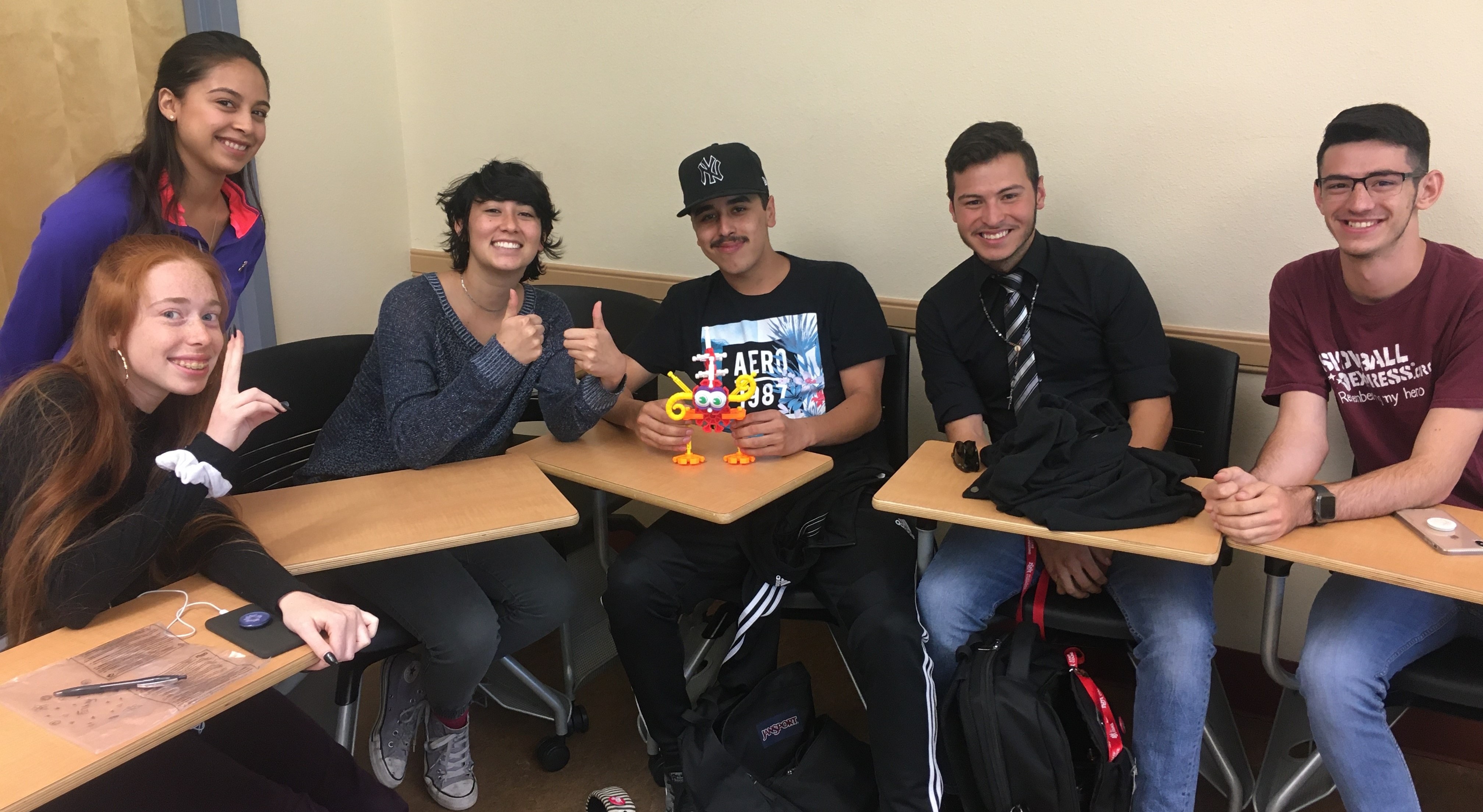Transition Communities

An Academic Gateway to College Success
Transition Communities are one or three-credit first-year seminars that help students excel in their first year at UNM through fostering skills for academic success and helping students discover and connect to the university. Students who participate in the Transition Community Program can expect to sharpen college success skills, explore their majors, and develop their degree plans. Courses are offered for students in a variety of majors, affiliations, and interest areas.
Course Spotlights - Fall 2025 Courses
Seminar: Making an Impact
FYEX 1110 - 017
Michelle Dugan
In this Academic Communities course, students will explore how to be successful students and leaders on campus. Our discussions will be rooted in feminist theories and harm reduction models, and students will get real-world practice advocating for issues they’re passionate about and supporting other students on campus. At the end of the course, interested students are invited to participate in ongoing mentoring and leadership development programming at the Women’s Resource Center.
Seminar: Black Minds Matter
FYEX 1110 - 002
Dannelle Kirven
Navigating UNM as a Black student can present a unique set of challenges and opportunities. Utilizing an Afro-centric approach to all course topics, we ensure that culture is connected to your academic success. This class is engaging, hands on and full of networking opportunities that will provide you a framework to achieve Black excellence at UNM. Taught by African American Student Services Student Success Specialist Dr., Dannelle Kirven.
Seminar: Engineer Design Explore
FYEX 1110 - 662
Yadéeh Sawyer
In this course, students will explore the various fields of engineering and computer science at UNM, as well as develop supportive skills to help them succeed in their academic journey. Students will engage in hands-on, interdisciplinary, and team work through a design experience.
Seminar: Financial Capabilities
FYEX 1110 - 003 and 004
Brian Vineyard
This one credit Fall 2024 full term course will cover topics such as: budgeting, loans, credit, investing, interest, banking, and taxes. This course meets face-to-face once per week with two different sections available to choose from. It's a great way to reach 15 hours and save money!
Seminar: Introduction to Ceramics - Ceramic Seduction
ARTS 1310 - 006
Julianne Harvey
Introduction to Ceramics is a "hands-on" art studio experience that introduces students to the terms, concepts, historical, and technical informnation that support creative development. Students will discover the techniques of hand building and throwing basic clay bodies. The studio is a creative incubator and learning laboratory. Reduction and oxidation atmospheric firings, readings, lectures, guest speakers, and field trips are included. This course promotes a lifelong enjoyment of ceramics and all its diverse reflections of human development and the aesthetic qualities that clay possesses. Students' own clay creations will reflect their first studio experience in the UNM College of Fine Arts.
Seminar: Do You Want to be in Design?
FYEX 1110 - 661
Amber Straquadine
Are you excited about design? Join us to investigate how design shapes the world around you and how can be a part of it. All design interests are welcome.
Seminar: Understanding Media
FYEX 1110 - 018
Kenneth Oravetz
In this class, we will build college success skills by taking a critical look at contemporary media and its impact on the world. What is it about Tik Tok that is so addicting? Can video games help us think about society in new ways? Along the way, you'll both learn media analysis methods, and build skills and mindsets for success in college, like critical thinking, growth mindset, time management, organization, and self-determination.
So, You Want to Work in Healthcare?
UNIV 201 - 618 and 606
Kenwyn Cradock
Interested in a career in medicine or other health profession? Develop strategies to become a competitive candidate for a health professions program. Gain insights into a variety of careers in healthcare from health professionals and health professions students. Learn about undergraduate majors and requirements that must be met to obtain a degree. Learn the importance of reflection, how to produce a solid personal statement, and learn effective listening skills to become an aspiring health care professional.
